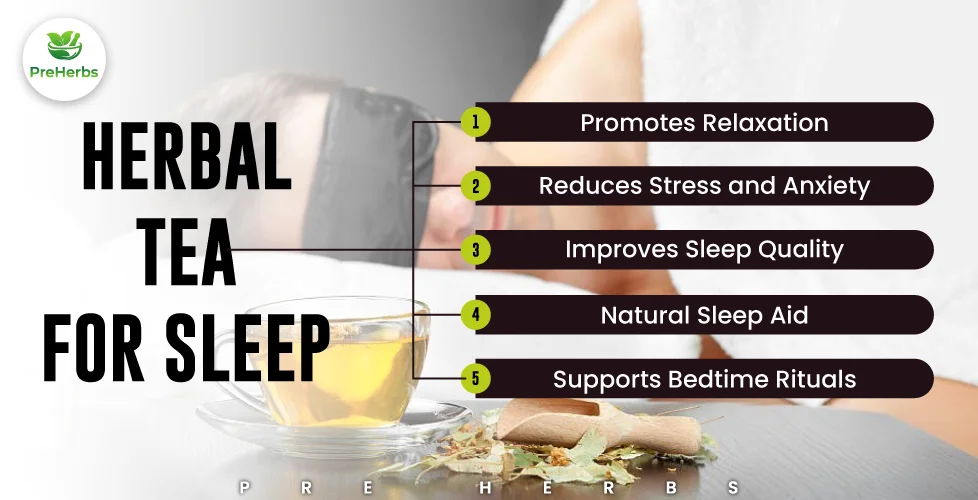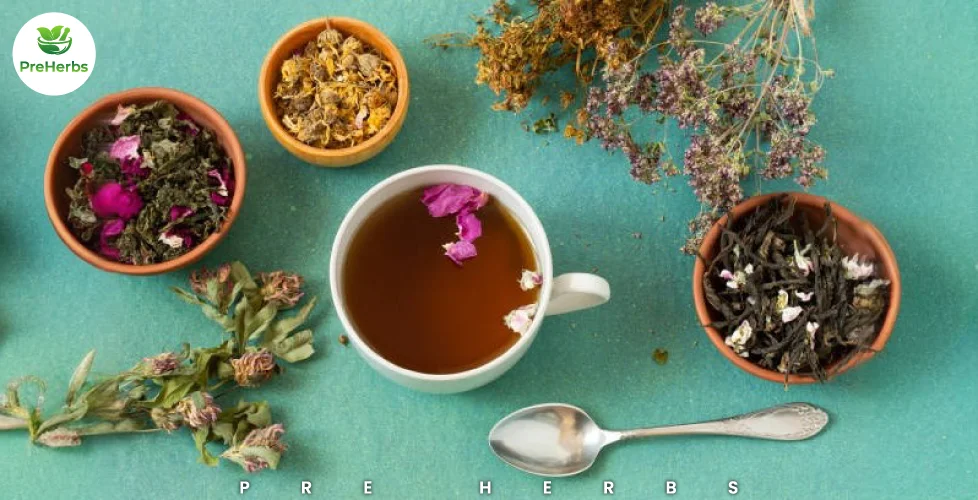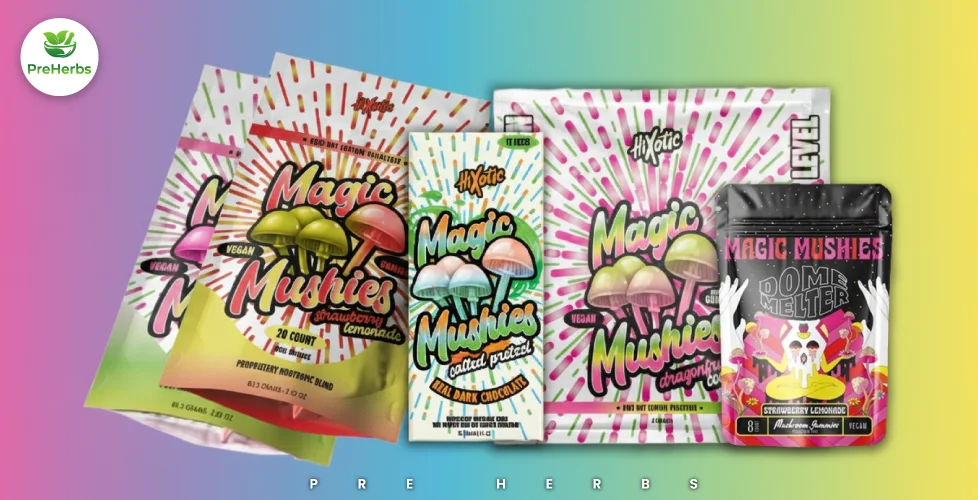In today’s fast-paced world, many people struggle to unwind at night. Stress, busy schedules, and restless thoughts often keep us awake long after we should be sleeping. Instead of relying on pills, more and more people are turning to herbal teas for sleep—a gentle and natural way to relax the body and calm the mind.
Unlike over-the-counter medications, these soothing drinks offer comfort without harsh side effects. They’ve been used for centuries as part of herbal rempedies for better sleep, making them a trusted choice for anyone looking for holistic wellness solutions.
Banana Tea
Banana tea is prepared by steeping either the fruit, the peel, or both in hot water. After a few minutes, the infusion is strained, resulting in a naturally sweet and mild beverage. Enjoying a warm cup of banana tea before bedtime may help the body recognize it’s time to wind down for sleep.
Researchers suggest that banana tea may offer similar sleep-supporting benefits as eating raw bananas. However, further studies are needed to confirm whether boiling affects the potency of its sleep-enhancing nutrients.
Magnolia Bark
Magnolia bark (Houpu), an ancient herb from traditional Chinese medicine, has been used for centuries to support restful sleep. Its active compound, honokiol, interacts with GABA receptors in the brain, helping to shorten the time it takes to fall asleep. Some studies note that it may increase nighttime awakenings, but it often reduces the time needed to return to sleep.
Magnolia bark can be consumed as a tea or taken in supplement form. Since the tea is made from tree bark, some people find the taste rather strong or unpleasant. For those sensitive to flavor, capsules may be a more suitable option.
Why Herbal Teas for Sleep?
Sleep is vital for good health, but many of us battle insomnia, anxiety, or racing thoughts. This is where herbal teas can help. From chamomile to lavender, these time-tested ingredients have been shown to reduce stress, improve rest, and promote relaxation.
Herbal teas are naturally caffeine-free, rich in calming compounds, and often infused with soothing aromas. When enjoyed consistently as part of a bedtime routine, they can:
- Reduce stress and anxiety
- Calm an overactive mind
- Improve sleep quality naturally
- Support overall relaxation and well-being
The Best Herbal Teas for Deep Rest
Discover the best herbal teas for deep rest that naturally relax your mind and body, helping you enjoy peaceful, restorative sleep.
Chamomile is often called “nature’s bedtime tea.” Its active compound, apigenin, helps ease anxiety and promote sleepiness. A warm cup before bed can gently prepare your body for rest.
Valerian Root Tea
Valerian root is a popular natural sleep aid herbal tea. It increases GABA levels in the brain, creating a calming, sedative effect. This makes it especially helpful for people who struggle with insomnia.
Lavender Tea
Lavender is well-known for its calming fragrance. As one of the best soothing teas for anxiety and sleep, it helps ease tension, relax the nervous system, and prepare the body for deeper rest.
Passionflower Tea
Passionflower works in a similar way to valerian by boosting GABA activity in the brain. This helps quiet racing thoughts and supports uninterrupted, restorative sleep.
Lemon Balm Tea
With its refreshing, citrus-like aroma, lemon balm has been used for centuries to reduce stress and lift mood. It blends beautifully with chamomile or lavender for an even stronger calming effect.
Ingredients of Herbal Teas for Sleep
- Chamomile
- One of the most popular sleep herbs.
- Contains apigenin, a compound that promotes relaxation and drowsiness.
- Valerian Root
- Known as a natural sedative.
- Helps reduce the time it takes to fall asleep and improves sleep quality.
- Lavender
- Famous for its calming aroma.
- Supports relaxation, reduces anxiety, and prepares the mind for sleep.
- Passionflower
- Increases GABA activity in the brain.
- Helps calm racing thoughts and encourages deeper rest.
- Lemon Balm
- Mild, citrusy herb with mood-lifting properties.
- Reduces stress, eases digestion, and improves sleep when blended with other herbs.
- Peppermint
- Naturally caffeine-free and refreshing.
- Soothes the digestive system, helping you sleep without discomfort.
- Holy Basil (Tulsi)
- Adaptogenic herb that helps the body cope with stress.
- Supports relaxation and balances the nervous system.
- Skullcap
- Traditional calming herb.
- Reduces nervous tension and promotes restful sleep.
- Rose Hips or Hibiscus (Optional Blends)
- Often added for flavor and antioxidants.
- Support overall health while complementing sleep-focused herbs.
Tips for Making the Most of Herbal Teas
To get the best results from herbal remedies for better sleep, make your bedtime tea part of a relaxing nightly routine:
- Drink your tea 30–60 minutes before bed.
- Dim the lights and put away screens.
- Pair your tea with calming activities like reading or meditation.
- Experiment with blends—chamomile, lavender, and lemon balm work wonderfully together.
Benefits of Herbal Teas for Sleep

- Promotes Relaxation
Herbal teas help calm the mind and body, making it easier to unwind after a long day. - Reduces Stress and Anxiety
Ingredients like chamomile, lavender, and passionflower naturally soothe nervous tension, helping you feel more peaceful before bed. - Improves Sleep Quality
Regular consumption can help you fall asleep faster, sleep longer, and enjoy deeper, more restorative rest. - Natural Sleep Aid
Unlike prescription sleep medications, herbal teas offer a gentle, non-habit-forming way to manage insomnia and restlessness. - Supports Bedtime Rituals
Drinking a warm, caffeine-free tea signals to your body that it’s time to wind down, helping establish a healthy sleep routine. - Eases Digestive Discomfort
Herbs like peppermint and lemon balm can soothe the stomach, reducing nighttime discomfort that may interfere with sleep. - Boosts Overall Wellness
Many herbs used in sleep teas provide antioxidants, anti-inflammatory properties, and mood support, improving overall well-being. - Safe and Caffeine-Free
Most herbal teas are naturally caffeine-free, making them ideal for evening consumption without the risk of stimulating the nervous system.
Herbal Tea Sleep Benefits
Lavender: Stress relief and calming aroma
| Herbal Tea / Ingredient | Key Benefits | How It Helps Sleep | Notes |
| Chamomile | Reduces anxiety, relaxes | Contains apigenin to induce drowsiness | Mild, “nature’s bedtime tea” |
| Valerian Root | Sedative, improves sleep quality | Increases GABA, calms the nervous system | May taste strong |
| Lavender | Calms nerves, reduces stress | Aromatic compounds soothe the mind | Good alone or in blends |
| Passionflower | Reduces racing thoughts | Boosts GABA to quiet the mind | Often blended with chamomile |
| Lemon Balm | Reduces stress, eases digestion | Mildly sedative, supports relaxation | Works well with chamomile/lavender |
| Peppermint | Aids digestion, refreshes | Soothes stomach to prevent sleep disruption | Caffeine-free |
Uses of Herbal Teas for Sleep
- Promote Relaxation
Herbal teas help calm the mind and body, making it easier to transition from a busy day into restful sleep. - Reduce Stress and Anxiety
Ingredients like lavender, passionflower, and chamomile act as natural relaxants, easing anxiety that often disrupts sleep. - Improve Sleep Quality
Drinking herbal teas regularly can help you fall asleep faster, stay asleep longer, and enjoy deeper, more restorative rest. - Natural Sleep Aid
Unlike prescription sleep medications, herbal teas for sleep provide a gentle, non-habit-forming way to manage insomnia. - Support Bedtime Rituals
Sipping a warm, caffeine-free tea before bed signals to your body that it’s time to unwind, creating a consistent nighttime routine. - Ease Digestion Before Bed
Some herbal teas, like peppermint or lemon balm, aid digestion. This helps reduce discomfort that might otherwise keep you awake. - Enhance Overall Well-being
Beyond sleep, many herbs provide additional wellness benefits—such as reducing inflammation, supporting mood balance, and boosting relaxation throughout the day.
Pros and Cons
What to Know About Herbal Teas for Sleep
Pros
- Natural, caffeine-free sleep aid
- Helps reduce stress and anxiety
- Gentle with fewer side effects
- Calming bedtime ritual
- Extra wellness benefits
Cons
- Results may take time
- Some herbs taste bitter
- Possible drug interactions
- Mild for severe insomnia
- Risk of allergies/sensitivity
FAQs
Your most common questions about herbal tea foe sleep.
1. Which tea is best for sleep?
Chamomile tea is widely considered the best for promoting relaxation and gentle, restful sleep.
2. What is the most powerful tea for sleep?
Valerian root tea is one of the most powerful teas for sleep due to its natural sedative effects.
3. What is the strongest herb for sleep?
Valerian root is often regarded as the strongest herb for inducing deep, restorative sleep.
4. What herbs cure insomnia?
Chamomile, valerian root, passionflower, and lavender are commonly used herbs to help manage insomnia.
5. Which herb is the strongest sedative?
Valerian root is considered the strongest natural sedative among sleep-promoting herbs.
Final Thoughts
If you’re tired of restless nights, herbal teas may be the natural answer you’ve been searching for. From chamomile’s gentle calm to valerian’s sleep-inducing power, the best herbal teas for sleep and relaxation provide safe and effective relief.
By making them part of your nightly ritual, you can ease anxiety, calm your mind, and enjoy deep, restorative rest. So, pour yourself a warm cup, take a slow sip, and let nature’s remedies guide you to peaceful sleep.



